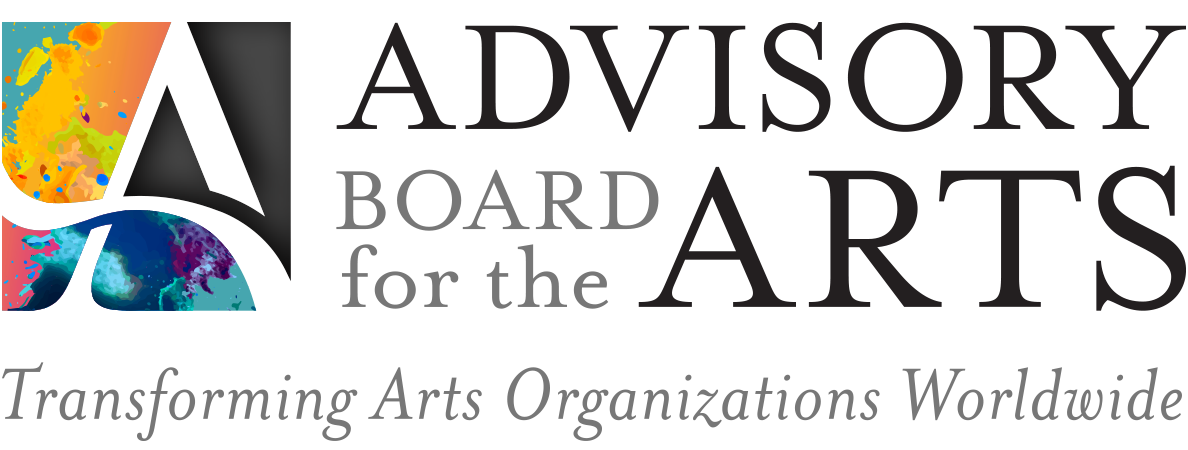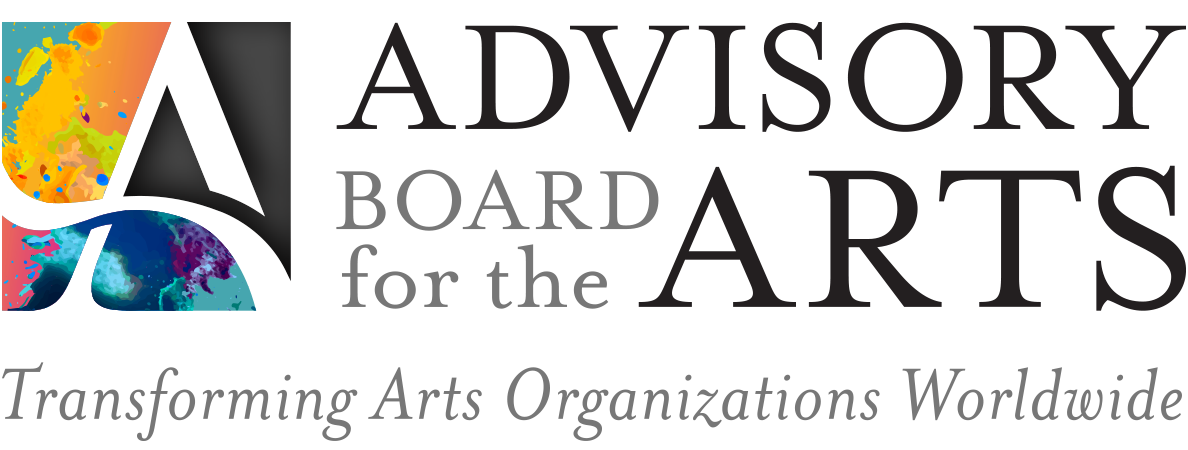Webinar Recap: Donor Perspective on Fundraising in the Crisis
April 14 (Replay at end of page)
On April 14th the Advisory Board for the Arts co-hosted a webinar with The Aspen Leadership Group to understand donors’ perspectives on fundraising during the current Coronavirus crisis.
Ron Schiller, Founder and Senior Consultant of the Aspen Leadership Group facilitated an enlightening discussion among four leading arts philanthropists in the United States:
Bruce Clinton, Trustee of the Chicago Symphony Orchestra, the New World Symphony, and the League of American Orchestras
Joan Harris, Trustee of the Julliard School and former Chair of the Board of the Harris Theatre. Joan is a Life Trustee of the Chicago Symphony Orchestra and received the National Medal of Arts from President Obama in 2013.
Bob Hurst, Co-chair of the Executive Committee of the Whitney Museum of American Arts, a Trustee of the Aspen Institute, and past Chairman of the Board of the Aspen Music Festival and School, among many other philanthropic leadership roles
Mike Klein, Chairman of the Board of the Shakespeare Theatre in Washington, DC, the Sunlight Foundation and the Aspen Music Festival, as well as a Trustee of the Aspen Institute
Through a series of questions asked by Ron and webinar attendees, our guest speakers provided helpful context and insight into how they are approaching giving during this unprecedented time of need for both arts organizations and our broader communities. Below is a summary of the key takeaways.
Donors with significant means want to help, and they want to help now.
Joan Harris
When asked if philanthropy is top of mind right now given all the other health, family, community, and business concerns, our guest speakers unanimously answered yes. They feel a deep responsibility to help the organizations they care so deeply about, as well as their broader communities. Joan Harris shared that she spent many years trying to create an orderly and structured way to distribute giving, and ultimately landed on two solid periods of giving each year, once in the spring and once in the fall. Since this crisis, she has moved away from that structure entirely. Organizations need capital infusions right now, so Joan has decided to consolidate her giving into one major period and continue that drip into organizations as new needs arise.
Donors will likely focus their giving on those institutions with which they have established, trusting relationships.
Bob Hurst
All our guests emphasized the critical role personal relationships play when making decisions on giving. They agreed that they are looking to support those organizations in which they are already deeply embedded and have a vested interest in their ability to survive and thrive coming out of the time of closures. Joan expressed that so much of a decision to support an organization is based on building a face-to-face, trusted relationship. Not being able to meet leadership teams in person or go on a site visit of the organization makes it extremely challenging to feel confident in a decision to support a new organization at this time. While Bruce agreed this is likely not the time to go to a new foundation or individual and ask for money, he suggested using this time to start building relationships that might lead to donations down the road. Now is not the time to make an ask of someone new, but there is no harm in trying to lay the groundwork for a future, meaningful relationship.
That said, our participants also noted they are providing support to social service organizations they have not contributed to in the past to support their broader community’s needs. For example, Bruce Howard has been working with a couple of others in his community to raise money for social services organizations in Aspen. In just two weeks, they have raised $3.7 million dollars, underscoring the deep desire of people to give back during this time. He agreed that while donors will likely step up to support the health and food needs of their communities, they will likely not be contributing to new arts organizations.
Give donors the information needed to feel engaged and confident in their giving.
Bruce Clinton
One of our webinar attendees asked our panel what information was most important for donors to have at this time. Bruce shared that he is most interested in the factual status of the organization right now – the good and the bad. He wants to be able to understand the scope of the problem. Bruce also emphasized the importance of knowing the organization has prioritized their most critical needs. Specific guidance on exactly what they need right now is critical.
Joan shared that she is primarily looking at leadership teams right now as she weighs her giving decisions. Organizations depend on quality leadership, and she wants to give to those who have the best chance of emerging from this crisis successfully.
Bob emphasized the importance of engaging donors as partners during this time. Inform them of your analysis and planning process and solicit their expertise to help build out those plans. While some donors may not be able to give financially at this time, they are likely to willing to offer their time and knowledge.
Don’t underestimate the power of small and medium-sized donors.
Mike Klein
Our guests also emphasized the importance of not only looking for support from your traditionally larger donors, but also making connections with organizations’ small and medium sized donors. Ron shared a story from a chief development officer at a museum that recently had to cancel its annual gala. The development team called every single donor, table buyer, and ticket buyer, and 100% of those contacted told the museum to keep the money. Ron said others have shared equally compelling stories about the power of personal outreach in garnering donations during this time.
Mike Klein, who is the Chairman of the Shakespeare Theatre in Washington, D.C., explained that given the organization has no endowment, they launched a fundraising campaign called the The Phoenix Fund to keep the theatre afloat during these difficult times. Mike shared that the fund has raised nearly $700,000 thus far, primarily through small donations. Each week the theatre’s artistic director creates a video that is posted online highlighting the progress of the campaign, how the money will be used, and where the greatest needs still remain. This type of communication makes the community feel far more engaged and connected to the giving, rather than feeling like they are simply writing a check.
Suspend long-term giving conversations and focus on near-term needs.
Now is not the time to focus on 3, 5, or 10 year giving. Organizations need to limit their fundraising efforts to focus on what is needed now to support the livelihood of their organizations and artists. A participant asked about continuing to solicit money for capital campaigns that were already in progress. Our panel suggested suspending that effort and keeping a clear focus on the needs at hand today.
Ron closed our session with an important reminder that organizations’ largest donors feel like they are part of the institution, not outsiders. They are inclined to help but organizations need to equip them with information that makes them feel confident that they will be good stewards of their giving. It is not an inopportune time to approach donors for gifts but in fact, an important time to give them the opportunity to make meaningful donations to support the organizations they care for deeply.
Resources to help
Both the Advisory Board for the Arts and the Aspen Leadership Institute have a variety of resources to help organizations navigate through the current crisis. Please access these resources through the following links:
Arts Resilience Center (The Advisory Board for the Arts)
Covid-19 Resources (Aspen Leadership Group)





